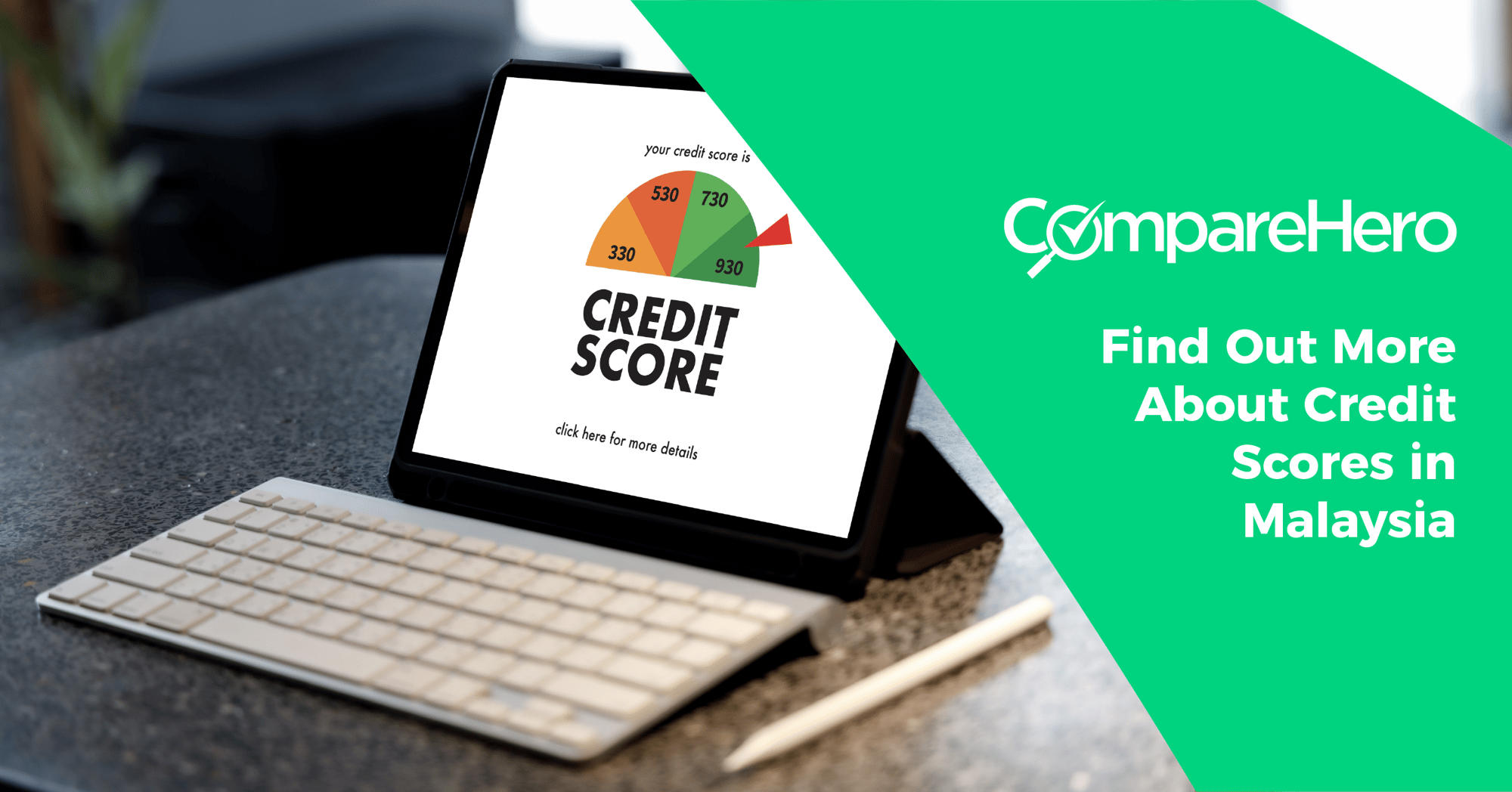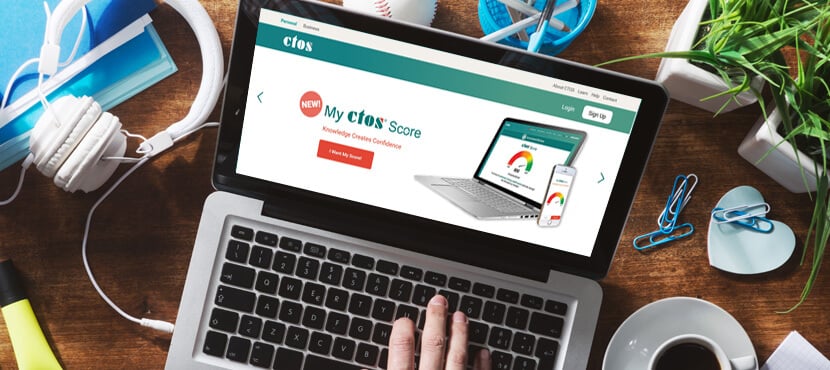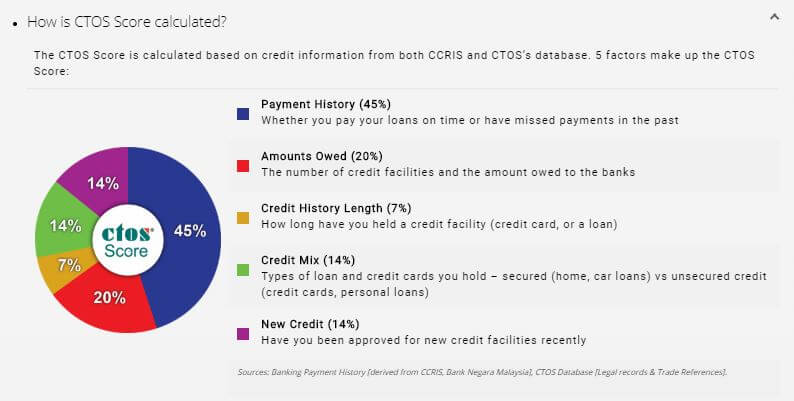You've just made a personal loan application to a bank. Some time after that, you received word that your application hasn't been approved and you're curious as to why.
The bank officer in charge of your application informs you that it's because your credit scores don't meet their requirement.
As Malaysians, it helps to know what credit scores mean and what they entail in your daily life. Additionally, you should know how to check your credit score in Malaysia.
In brief, your credit score is a reflection of your behavior as a borrower. Banks and other lenders depend on it to guide their decisions on whether you should receive the financing you seek.
Apart from individual credit scores, you can also check the credit scores of your company, if you own and operate a business. Before we dive into how you can check your credit scores, let's look at some basic definitions.
Credit Scores: Basic Terms and Definition
Your credit scores are kept by several bodies in Malaysia. Some of them are private entities, whereas one sits under Bank Negara Malaysia, or the National bank.
These terms and concepts will come in handy as you navigate the world if financing and loan applications.
Credit History
A credit history is a record of all your previous loans and details about their payments.
This includes the types of loan accounts you have, your responsibility on the account (e.g. whether you were a joint borrower), the credit limit or amount of the loan, the current balance, minimum payments made, whether you’ve made any late payments, and the current account status.
Credit Report
A credit report is basically a report card on how you managed your overall finances. It's normally issued by a credit reporting agency or credit bureau and will include your credit history, outstanding debt, bankruptcy status, and other non-banking or legal-related information.
Do take note that credit reports are neutral, meaning they include both the good and the bad, and are meant for the evaluator to make a conclusion about one's creditworthiness.
Credit Score
A credit score is a three-digit number, typically between 300 and 850, that represents your creditworthiness and relates to how likely you are to repay debt. This helps banks and lenders evaluate your application for credit or loans.
Credit reporting agencies calculate these scores based on their own proprietary models. Your score will never factor in personal information like your race, gender, religion, marital status, savings or deposits information, salary details, or criminal records.
Why are Credit Scores Important?
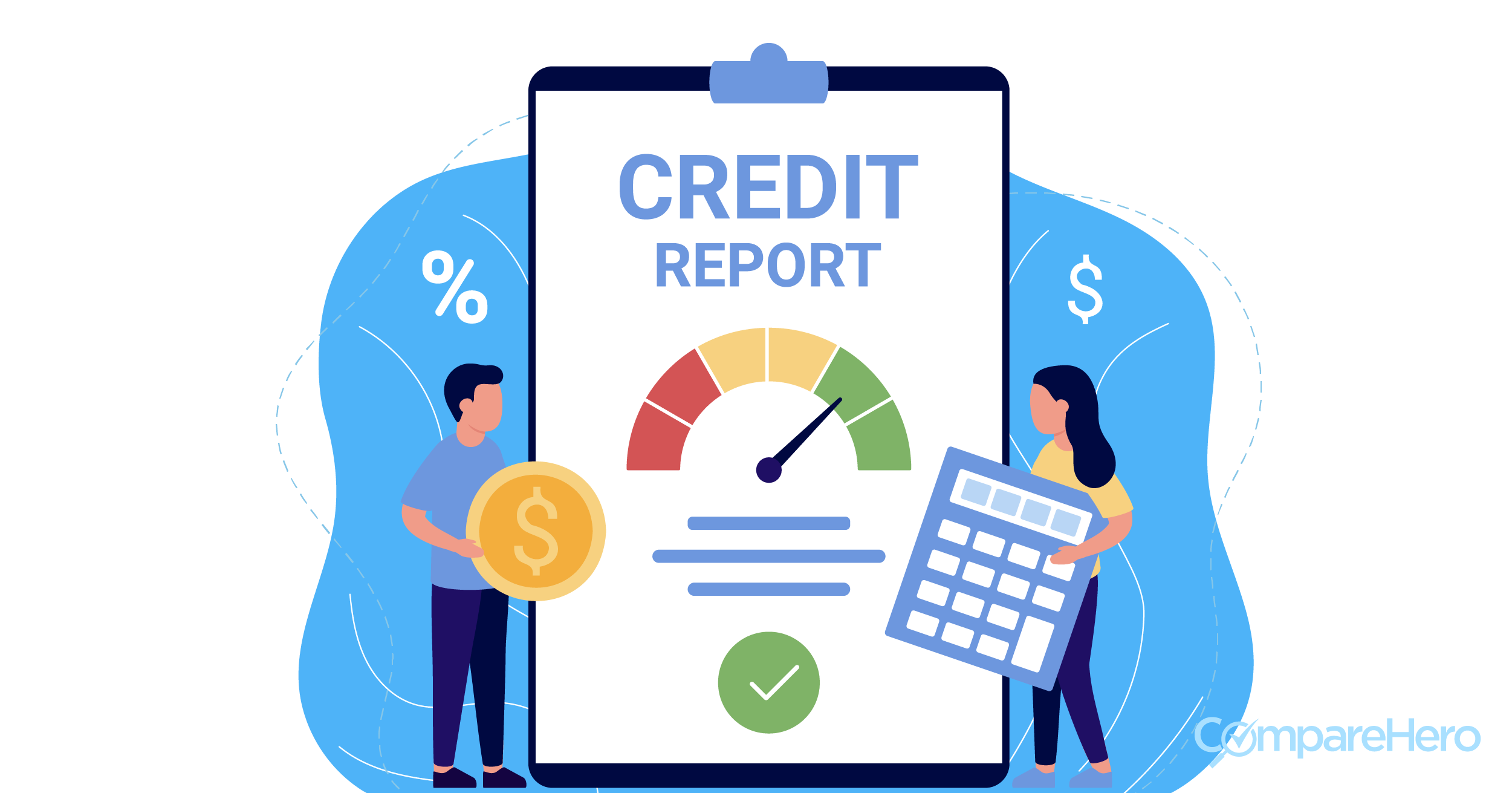
A credit score plays an important role when you want to apply for a financial product from a bank, including a personal loan, mortgage, car loan, or credit card.
Banks, financial institutions, and even businesses use your credit score to evaluate the credibility of your financial health. It helps them understand the risks they might face if they decide to lend money to you.
The higher your score, the better it is, and the higher the chance of getting your applications approved. Essentially, it is an indicator of your financial health.
On top of that, you can leverage the banks or firms for a better deal such as lower interest rates or flexible payment periods if you have a better credit score. Moreover, you will have more options to choose from as more banks and lenders will prefer to deal with you.
Credit Reporting Agencies in Malaysia
There are three main Credit Reporting Agencies (CRAs), governed under the Credit Reporting Agencies Act 2010 and registered to the Registrar Office of Credit Reporting Agencies. These CRAs are:
- Bank Negara Malaysia, which maintains the Central Credit Reference Information System (CCRIS)
- CTOS Data Systems; that issues MyCTOS Score Report
- RAM Credit Information (RAMCI); which issues the Experian Personal Credit Report
Getting to Know The Different Credit Reporting Agencies
Credit reporting services are a booming industry in Malaysia, and there are only a few agencies that are currently active and functioning. Obtaining your credit reports has to be done individually with the different agencies.
Apart from your CCRIS report, which is free of charge, the other agencies will charge a fee when you request to copy of your report, which usually comes in a digital form.
Bank Negara's CCRIS
CCRIS is managed by the Credit Bureau of Bank Negara Malaysia and it collects credit information from financial service providers in Malaysia like banks, insurance brokers, and even private utility companies such as Malaysian telecommunication companies.
Information that will be on the credit report from CCRIS is outstanding loans, summons, or whether the person has been declared bankrupt.
All of the information and data are then compiled into a credit report which financial institutions like banks will have access to.
The data that is on the credit report will be broken down over a period of 12 months. It will contain credit-related information of an individual such as:
- Outstanding credit
- Special attention accounts, which are credit facilities under close supervision of financial institutions
- Applications for credit in the previous 12 months that have been approved or are pending
It should also be noted that CCRIS also stores positive information like your credit approvals and positive repayment history.
Contrary to public misconceptions, CCRIS does not blacklist any individual or company fore poor repayment patterns. They merely provide factual and numerical reporting.
Types of CCRIS reports
You will find only one type of credit report from CCRIS and it does not involve a score. This is because the credit history and data collected are raw information that is not assessed and rated by Bank Negara (CCRIS).
How do you get your CCRIS report?
You can get a copy of your CCRIS credit report from CCRIS kiosks at Agensi Kaunseling dan Pengurusan Kredit (AKPK) premises nationwide, but do take note that you can only get access to your own credit report so you cannot ask someone else to obtain it for you.
You will need to bring along your MyKad and other supporting documents to verify your identity. The credit report will then be issued to you at Bank Negara Malaysia’s head office.
Alternatively, you can also sign-up for an account at the eCCRIS portal, which will allow you to obtain a copy of your CCRIS report online.
Private agencies like CTOS, Experian and Credit Bureau Malaysia also carry CCRIS reports
CTOS
CTOS is a private company that provides credit reporting and is also widely used by financial institutions to determine an applicant’s creditworthiness aside from CCRIS. Usually, financial institutions use more than one credit report to determine an applicant’s credit health and CTOS is a dependable and popular choice in Malaysia.
CTOS collects credit-related information from various public sources such as:
- National Registration Department
- Malaysia Insolvency Department
- Companies Commission Malaysia (CCM)
- Publications of legal proceedings and notices in newspapers and government gazettes.
The type of credit-related information included in the CTOS credit report includes bankruptcy, legal action, and ongoing case statuses. It also details an individual’s business exposure, business ownership, and directorships, if any.
Types of CTOS reports
There are two types of reports provided by CTOS:
- MyCTOS Basic report – A brief credit report that only includes legal cases, personal information, business information, bankruptcy declaration (if any), and banking payment history (derived from Bank Negara).
- MyCTOS Score report – A comprehensive report that includes litigation and bankruptcy cases, directorship in registered companies, and banking payment history from CCRIS and MyCTOS Score.
How do you Get Your CTOS report?
You can also obtain your own credit report from CTOS through its online portal – MyCTOS. You can sign up here to get access to two free MyCTOS Basic reports per year. To get the MyCTOS Score Report, however, you will have to pay RM25.
Experian Information Services (Malaysia) Sdn. Bhd
Experian operates a credit information bureau in Malaysia. Experian opened its new market division to serve individual consumers in 2015 with the introduction of three credit reports, using its own credit score, i-Score.
What is Experian's i-Score?
i-Score is a three-digit number that predicts how likely you are to pay back a loan or other credit obligations on time. The higher the score, the lower the risk you are to the lenders or banks.
i-Score does not determine whether your application will be approved or the interest rate banks will offer. However, it offers some guidance to the banks before approving a credit application.
The Types of Individual Credit Reports from Experian
There are three types of credit reports by RAMCI:
- Personal Credit Report Basic (PCRB) – This basic report provides only the Experian credit information (derived from Experian’s partners) and ANGKASA SPGA information (for public servants). FREE every 6 months.
- Personal Credit Report Plus (PCRP) – This report covers Experian credit information, banking credit information, ANGKASA SPGA information, and i-Score rated by Experian. It costs RM19.50 for per set.
- JagaMyID Subscription – With this subscription, you will receive timely alerts when an application is made under your name for a credit card or loan facility. Alerts will also be sent if they detect any changes in your credit profile. A monthly notification email will also be delivered to you with updates on your credit profile changes and credit score. This will set you back RM 63.60 / 1 Year (Inclusive of SST)
How can you obtain an Experian report?
You can visit this site and sign up for your Experian Personal Credit Report: i-Score today.
Credit Bureau Malaysia
Credit Bureau began operations in 2008 by helping SMEs get access to better financing. When the Credit Reporting Act 2010 was introduced, Credit Bureau Malaysia was introduced and expanded its market to include helping individuals.
Credit Bureau Malaysia collects and compiles credit information from various sources. Then they process this data and disseminate it to financial institutions and other credit grantors.
Credit Bureau Malaysia is jointly owned by Credit Guarantee Corporation Malaysia, Dun & Bradstreet Malaysia, and the Association of Banks Malaysia.
You can get an Individual Credit Report (ICR) from Credit Bureau Malaysia to get an overview of your personal information, related business and companies information, MySCoRE assessment, dishonored cheque summary, past inquiries, credit information, and non-bank credit information.
Find The Right Credit Reporting Agency For You Here!
How are Credit Scores Calculated?
Different credit agencies have different formulas to evaluate an individual’s credit score.
You should not assume that your credit score will be the same across different credit agencies. Credit scores vary for two main reasons, the data on which the score is based, and the calculation method adopted. In general, here are the factors considered when determining credit scores.
- The number of credit facilities and the amount owed to the banks
- Whether you pay your loans on time or have missed payments in the past
- The length of your credit history
- Types of secured and unsecured credit you hold – secured (home loans, car loans) vs unsecured credit (credit cards, personal loans)
- Whether you've been approved for new credit facilities recently
CCRIS by Bank Negara Malaysia (BNM)
In general, the CCRIS report does not provide a credit score. It only provides information on an individual’s credit profile such as their name, address, business registration and financing application details such as the amount of loan applied for. It also lists details for each credit account such as the outstanding amount.
CTOS
For CTOS, their scores are calculated based on credit information from both CCRIS and CTOS databases. The image below explains the 5 factors that make up a CTOS Score:
- Payment History (45%) - Whether you pay your loans on time or have missed payments in the past.
- Amount Owed (20%) - The number of credit facilities and the amounts owed to each credit provider.
- Credit History Length (7%) - How long have you held a credit facility (credit card, or a loan).
- Credit Mix (14%) - Types of loan and credit cards you hold – secured (home, car loans) vs unsecured credit (credit cards, personal loans).
- New Credit (14%) - Have you been approved for new credit facilities recently?
EXPERIAN
Formerly known as RAMCI, Experian reports include information such as debt repayment patterns, overdue accounts, frequencies of credit application, and outstanding credit.
Frequently Asked Questions
1. How often are credit scores updated?
Most credit reporting agencies update your credit records once a month.
For CCRIS
CCRIS does not provide your credit score in its credit report. However, it is stated that if you have settled any debt, your regularized account will be shown in the current month of your settlement. Nevertheless, the information on a number of installments in arrears for the last 12 months will be displayed in the credit report.
The record will be updated by the participating financial institution by the next reporting date, no later than 10th of every month.
For CTOS
It is your right and responsibility to update the information in your CTOS Self-Check Report. Generally, CTOS collects information from the banks, financial institutions, Bank Negara, firms and any sources available on our credit and legal conditions continuously. Hence, it is important for you to check your credit report yourself and see if there are any errors or mistakes in your personal and credit information.
It is advised to do so every six months to make sure your profile is up-to-date and provides the latest information to the banks in order to improve your chances of financial product’s application approval.
For RAMCI
Similar to CTOS, RAMCI continuously updates every individual’s credit report based on their source feeds. You can request for an update if you find any outdated or wrong information on your credit report.
2. If my name appears on any of the credit reports, does it mean I'm 'blacklisted'?
In short, no. The term 'blacklisted' does not come into play. Credit reporting agencies provide factual and numerical reports to lenders, who have the final say in your loan approval.
3. What do I do if my credit score isn't up to par?
You can refer to the following section in this article for tips. Of course, learning how to check your credit score Malaysia is one of the first steps.
1. Check your credit score regularly
Monitoring your credit score report regularly can help you ensure you are on track to maintain or improve your credit score. If you don’t check it regularly, you may put yourself at risk of fraud. For example, John Doe may be using your personal information to apply for a credit card without you knowing it.
2. Manage credit cards and loans properly
Do not max out your credit card limit as this tells the credit agencies that you are always at the edge of your finances. Also, you should control your urge to apply for a loan if you can resort to other alternatives such as saving or borrowing from family.
See also: How to Use Credit Cards Responsibly
3. Pay on time
This is one of the most important habits to showcase your capability as a good paymaster to the credit agencies and banks. By paying your monthly debt repayment, your score will be higher due to your consistency and discipline.
4. Do not apply for too many credit cards or personal loans at once
This may show banks that you are desperate for a sum of money which may put you at higher risk with banks. It could be a sign that you will not be able to repay your credit card or loan amount.
5. Avoid legal cases and bankruptcy
Try your utter best to stay out of trouble and make every effort to improve your financial condition even if it is in the worst shape ever. Bankruptcy will cost you a good amount of time for recovery and you will need at least two years to regain a healthy credit score.
4. How to check my credit score in Malaysia?
We've compiled the different credit reporting agencies on this article, and you can generally access your credit reports online through their websites.
Easy but effective steps to improve your credit score:
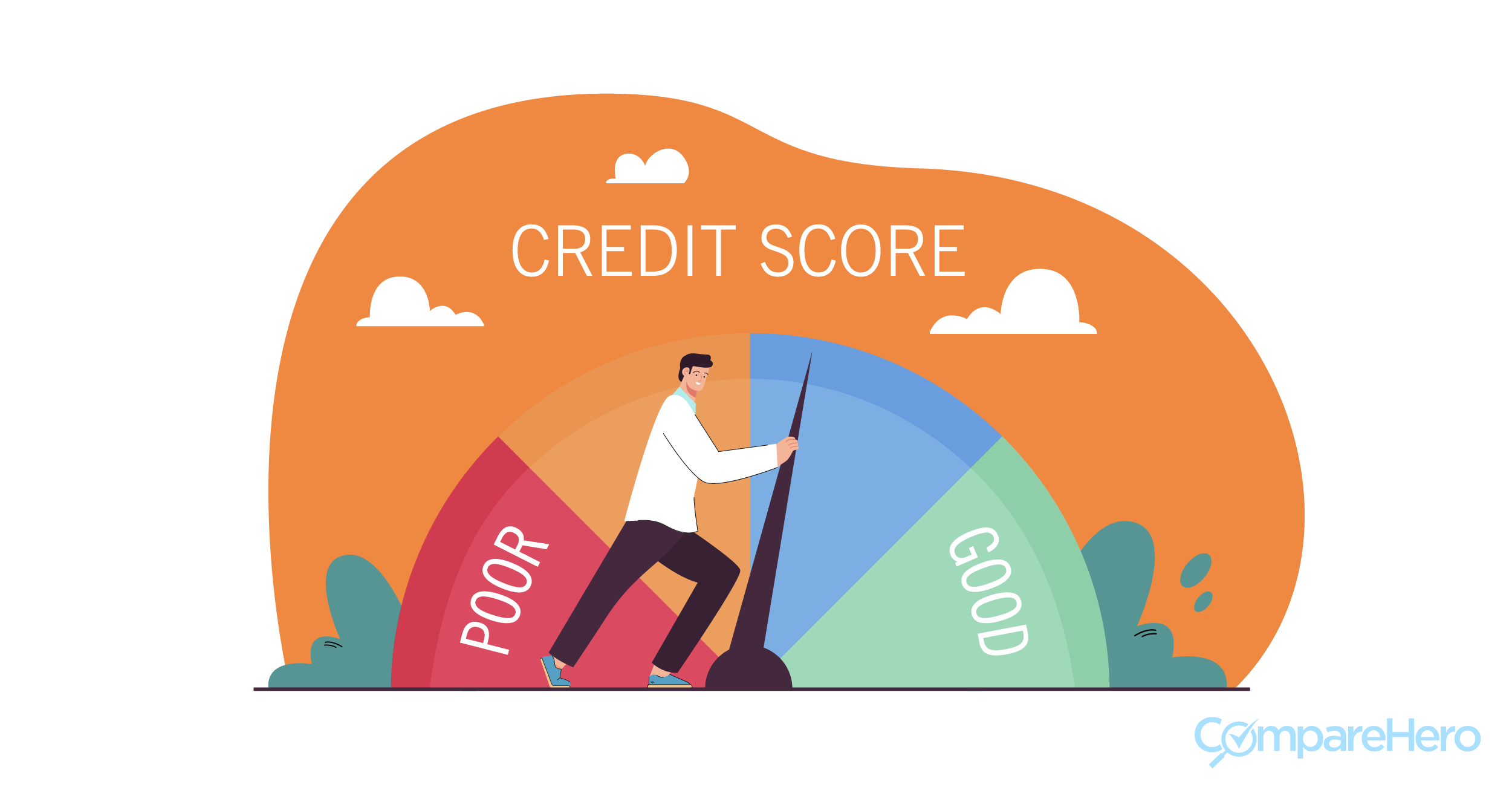
1. Prioritize debts with the highest interest
You should always try to clear your debts with the highest interest rates in order to minimize your cost. Credit card debt is usually the credit with the highest interest charges (18% per annum), followed by a personal loan. Ultimately, you should clear off as many debts as you can and make sure your debt service ratio is below 50%.
One debts resolution strategy you can adopt is to consolidate your debts, i.e. combine them into a single credit facility, preferably with the lowest interest rates.
For credit cards, you can take on a balance transfer card with the best rates to make your debts more affordable.
See more: Find out the best balance transfer plan in Malaysia here!
2. Make timely payments
Paying on time is a virtue. And it helps to keep your credit score in good health state. Missing payment deadlines or defaulting on your debt will affect your credit score badly over a long period.
3. Double-check your financial responsibilities
If you are having a hard time clearing your credit card debt, you may want to double-check your shared expenses such as supplementary credit cards or utility bills with your partner. You should measure your financial capability accurately before taking on any additional responsibilities or commitments, especially if it’s not yours to carry.
4. Build a healthy credit history
For those who do not currently have a credit card or any form of loan, you will not have a credit history. This isn’t always a good thing. You should consider applying for a no-annual fee credit card in order to build up your credit history. This helps the banks understand your risk profile which will help you get the loan you need in the future.
See also: Personal Loan Guide: Money Management
What To Do If You Don’t Have a Credit Score

If you do not have a credit card, or if you currently do not have any loans under your name, it means you won’t have a credit score, which may cause you problems in the future. For example, you decide you want to settle down and purchase a house. If you have no credit score, banks do not have access to your financial history to see how good (or bad) you are with your payments.
Here are 3 things you need to do to start building your credit score:
1. Get A Zero Annual Fee Credit Card
One of the easiest ways to get started on creating your credit score is by getting a credit card. Why? Because with a credit card, you will be creating a credit history when you begin using it.
You may be put off using credit cards because of the horror news of people being dragged down by their credit card debts. However, you can avoid this by applying for a no-annual-fee credit card to minimize your cost and only use them for petrol expenses or emergency uses. Compare the best credit cards with no annual fee right here at CompareHero!
See also: Sign Up For Malaysia’s Best Basic Credit Cards With No Annual Fees
2. Check Your Financial Commitments and Loans
Before applying for your first credit card or loan, you need to check all of your current commitments such as utility bills or debt (friends and family), so that you are well aware of your full financial conditions. By doing this, you can manage your finances better.
3. Check and Track Your Credit Score regularly
Once you have your first credit card or loan, you should apply to check your credit score and report within the first six months to make sure all of your personal information is correct.
Subsequently, keep track of your credit report every six months to make sure things are aligned such as credit information and personal information.
What Other Factors Will Lenders Consider?

There are many other factors that are taken into account when the bank decides to reject or approve your application. It is not solely dependent on your credit score report.
Here is a list of information that banks will also consider before approving an application:
- Profession and Industry - Risky jobs may have lower chances of approval or higher interest charges.
- Income level & employment history - Your chances of approval for a credit card are higher if your income level is stable and you do not job-hop in a short period.
- Employer - Multinational corporations or government-employed applicants have a higher chance of
- Bankruptcy or legal cases from the past - Though your credit report may be ‘clean’ for the past three or five-year, banks still factor in your past history in bankruptcy declaration or legal cases before approving your application for a loan or credit card.
- Asset - Banks may approve your application for credits if your net asset value is high.
- Down payment and loan period for loan application - Banks will consider your credit application to be less risky if your down payment is higher (lower amount of loan) and the length of loan repayment is shorter.
- Location of residences - This unwritten rule applies to certain banks, subjective to their requirements and strategy, for example, if they do not have a branch or resource in a certain state, they are less likely to approve an application from someone in that state.
By now, we hope you have a better picture of how a credit score works and why it is important to maintain a healthy state.
Final Thoughts
Credit scores are a reflection of your character as a borrower. The more responsible you behave, the more favorable your credit scores and credit reports will be.
This won't just influence your current applications for financing, but contribute to future personal loan applications and corporate loan applications as well.
In short, managing your finances wisely will have a positive effect on every part of your life. Subscribe to our weekly newsletter for more financial literacy content and useful financial tips!







